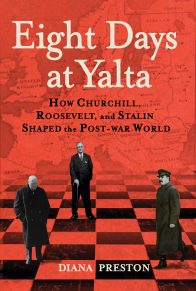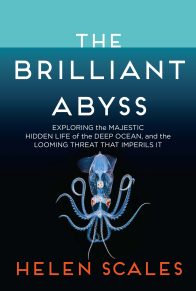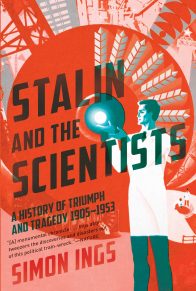Because of its twin scientific and philosophical consequences for humanity, the voyage of HMS Beagle was to become one of the most important ever undertaken, arguably surpassing the expeditions of Leif Erikson, Ibn Battuta, Zheng He, Ferdinand Magellan, Christopher Columbus, and James Cook, and even the first moon landing. Yet when the Beagle departed England, little suggested the intellectual revolution to follow. Charles Darwin was a conventional young man, but as the voyage progressed, he began to develop unconventional ideas. The theories that grew from his research on the voyage would redefine perceptions of humanity and its relationship to other species, showing it had evolved from earlier life forms and was not the divinely created and ordained apex of an unchanging hierarchy. Darwin’s thinking would consign the first chapter of Genesis, and with it Adam and Eve, to a mythological limbo, though he himself would never become a declared atheist.
At the time, Darwin would have appeared an unlikely radical thinker. From a wealthy middle-class background he was, by his own admission, comfortably used to being the focus of family attention, not least from his devoted sisters. He had accepted his medical doctor father’s prescription for his unfocused son of a quiet life as a country parson until unexpectedly offered the opportunity to sail on the Beagle. He anticipated the coming voyage would show him the glories of tropical places so vividly described by his hero the explorer and natural scientist Alexander von Humboldt.
Sociable, usually good-natured, and eager to please, Darwin was well-suited to fit in on a small naval vessel. His uncle Josiah Wedgwood II, son of the founder of the Wedgwood potteries, had already spotted that Darwin was “a man of enlarged curiosity.” Yet to many who knew him, the likable young man, installed with his books and microscopes aboard the Beagle, did not seem out of the ordinary. Indeed, Adam Sedgwick, Cambridge University professor of geology, thought, “There was some risk of his turning out an idle man.”
Like many of his contemporaries, Darwin was cheerfully and unashamedly chauvinistic, nationalistic, and sexist, as the diary he kept aboard the Beagle as well as his subsequent writings reveal. However, though far from radical, his political views were liberal for the time and deep-seated. He opposed slavery, and during the voyage his abhorrence was reinforced by seeing slave-owning societies at first hand. While he believed that different peoples—such as the indigenous Aboriginal peoples of Australia and the Fuegians subsisting near-naked in twig wigwams in chill Tierra del Fuego—might be at differing stages of “civilization,” he never wavered from the belief that all humankind belongs to a single species.
By its eventual length—nearly five years—and the fact it circumnavigated the world, returning from South America across the Pacific via Polynesia, New Zealand, and Australia, the Beagle voyage gave Darwin a rare opportunity to gather a massive collection of data. These enabled him with growing confidence to examine geological strata and compare and contrast flora and fauna, whether on opposite sides of the Andes or within islands such as the Falklands, St. Helena, Ascension, and the Galapagos—although contrary to popular myth, he did not have a eureka moment about evolution in the latter. He was able to collect fossils of extinct species, prompting lines of thought about their connections to species still living. In Chile he felt the ground shudder beneath his feet— his first experience of an earthquake—seeming proof that the earth’s crust was in perpetual motion.
The voyage marked an evolution in Darwin himself. The more facts he gathered—and he was, throughout his life, an inveterate list maker—the more ideas came into his head. Many of these would have seemed heretical to the embryo clergyman he had been when he sailed, not doubting the literal truth of the Biblical picture of Creation. For most of the voyage Darwin thought of himself as primarily a geologist. However, in its latter stages he turned increasingly to biology and zoology. As the Beagle finally headed for home, he was already making notes on how species changed though it would be many years before he felt confident enough to reveal his ideas about evolution publicly and face the storm of hostility he knew they would provoke. Integral to his thinking was the interrelationship between living organisms and their environment, making him a pioneer of what we today call ecology.
Eager to explore ashore at any opportunity—Darwin spent some three-fifths of the time on land—he plunged into remote, sometimes hazardous, hinterlands for weeks, even months, usually carrying his pistols with him. In Argentina, he rode hundreds of miles with only gauchos for company, relishing their independent way of life, cooking beef over fires of animal bones and sleeping on their saddles beneath the starry Southern Hemisphere skies. He became caught up in South America’s frequent political upheavals. On one occasion he marched with an armed detachment of Beagle crew through the streets of Montevideo to intervene in a rising to help defend British property, even if he soon retired back to the Beagle with a headache.
During the voyage Darwin embraced new experiences, sampling his first banana in the Cape Verde islands and drinking tortoise urine in the Galapagos. Traveling rough, he sometimes became ill. Whether the poor health that harassed and hampered him in later years stemmed from this period, perhaps from bites from the notorious bugs of the South American pampas, has been much debated. As the voyage went on and as he collected ever more data, Darwin’s curiosity about the natural world grew more focused and analytical. He developed from a diffident young man, conscious of his inexperience, into an assured, ambitious natural scientist, prepared to question the ideas of his mentors. He came ashore in Falmouth in October 1836 no longer planning life in a quiet country parsonage, but determined to establish himself in academic circles.
The Beagle voyage also shaped the lives of others on board, in particular Captain Robert FitzRoy and his Fuegian protégé, Jemmy Button. FitzRoy, whose desire to take a naturalist gave Darwin his chance, spent a very different five years to the young scientist he nicknamed his Philos, or “philosopher.” Striving to fulfil his exacting orders from the Admiralty— even feeling compelled to spend his own money on the expedition—the perfectionist, possibly bipolar FitzRoy suffered a nervous breakdown. He also saw his attempts to establish a Christian mission in Tierra del Fuego fail. In later years, as a traditional Creationist, FitzRoy blamed himself for allowing Darwin the opportunity to develop his “heretical” theories. FitzRoy’s own career endured peaks and troughs. Though he distinguished himself as a meteorologist, devising the world’s first weather forecasts, his life ended tragically.
Of the three Fuegians FitzRoy brought to England as a kind of social experiment and then returned, Jemmy Button was the one most deeply affected by the Beagle voyage. Like other indigenous people plucked from their homes—such as the tragic Bennelong dispatched to Britain by Arthur Philip, governor of the first convict settlement in Sydney Cove, Australia—he was left stranded between two societies with serious consequences.
Others aboard the Beagle, from erstwhile ship’s “fiddler and boy to the poop cabin,” Syms Covington, who became Darwin’s personal assistant, to young naval officers Bartholomew Sulivan and John Wickham, who became Darwin’s lifelong friends, thrived through their experiences during the expedition.
The voyage of the Beagle was about discovery in every sense, at every level from self-discovery through detailed broadening of knowledge to the widest scientific revelation. This book belongs to all who sailed, but especially to Darwin, without whom the voyage would have been a footnote, albeit quite an important one, in the history of marine charting and meteorology. As he himself wrote, it was “by far the most important event in my life and . . . determined my whole career.”















